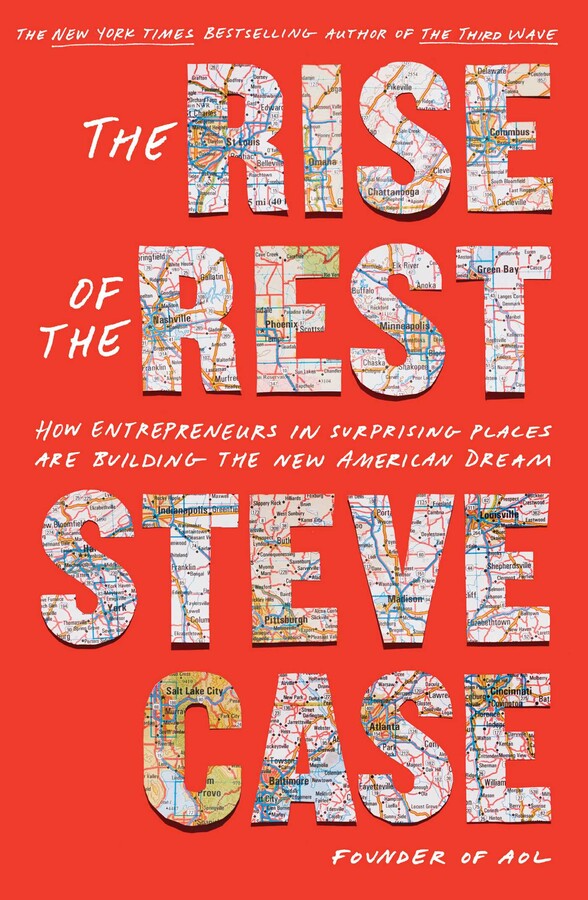For nearly a decade, AOL founder Steve Case, his immediate team, and a network of venture capital partners have been discovering and funding creative and innovative entrepreneurs across the United States. Often traveling by bus, and offering investments through competitive local events, they have seen the goodness of expanding new ventures beyond the handful of technology hubs.
In his preface, he reiterates deep concern that America is losing its global leadership as the most entrepreneurial nation in the world. To his credit, Case is confronting the arrogance of coastal elites as they look at “flyover” lands. Where many of his peers see little hope, Case sees possibilities when investors, entrepreneurs, local and regional governments, and all social sectors work together.
Part I is a combination of narratives of innovative companies and important thematic elements. The overall theme is of particular importance to all who see life through the lenses of God’s kingdom and the local church: place matters. Though Case is not writing from a religious point of view, he affirms a fundamental reality that humankind is made for community and that the atomization and potential isolation of remote work must be met with a commitment to the common good of where one lives, works and plays.
Part II builds on these examples and themes with observations concerning the integration of innovation, new hubs, and the government as a catalyst (incentivizing, not controlling), and speaks to the social conscience and common good ethos that flows from activists who care about all flourishing and neighborhood renewal. The impact of the pandemic and the need for all cultures to have access and opportunity animate the final chapters of the book. Investing in firms led by women and men of color is a passion for Case, and his examples are heartening, but much more must be done. The writing here is encouraging and sobering: Case offers a hopefully realistic vision; however, he does not spend enough time accounting for human fallenness and systemic issues. Selfishness and entrenched power are great forces to overcomes, and they are not merely political or racial, but endemic to every location and situation. Case assumes that most people want a better future for themselves and coming generations. While this may be true on some level, Case needs to place greater emphasis on a few other ingredients for economic and social renewal.
— Charlie Self
